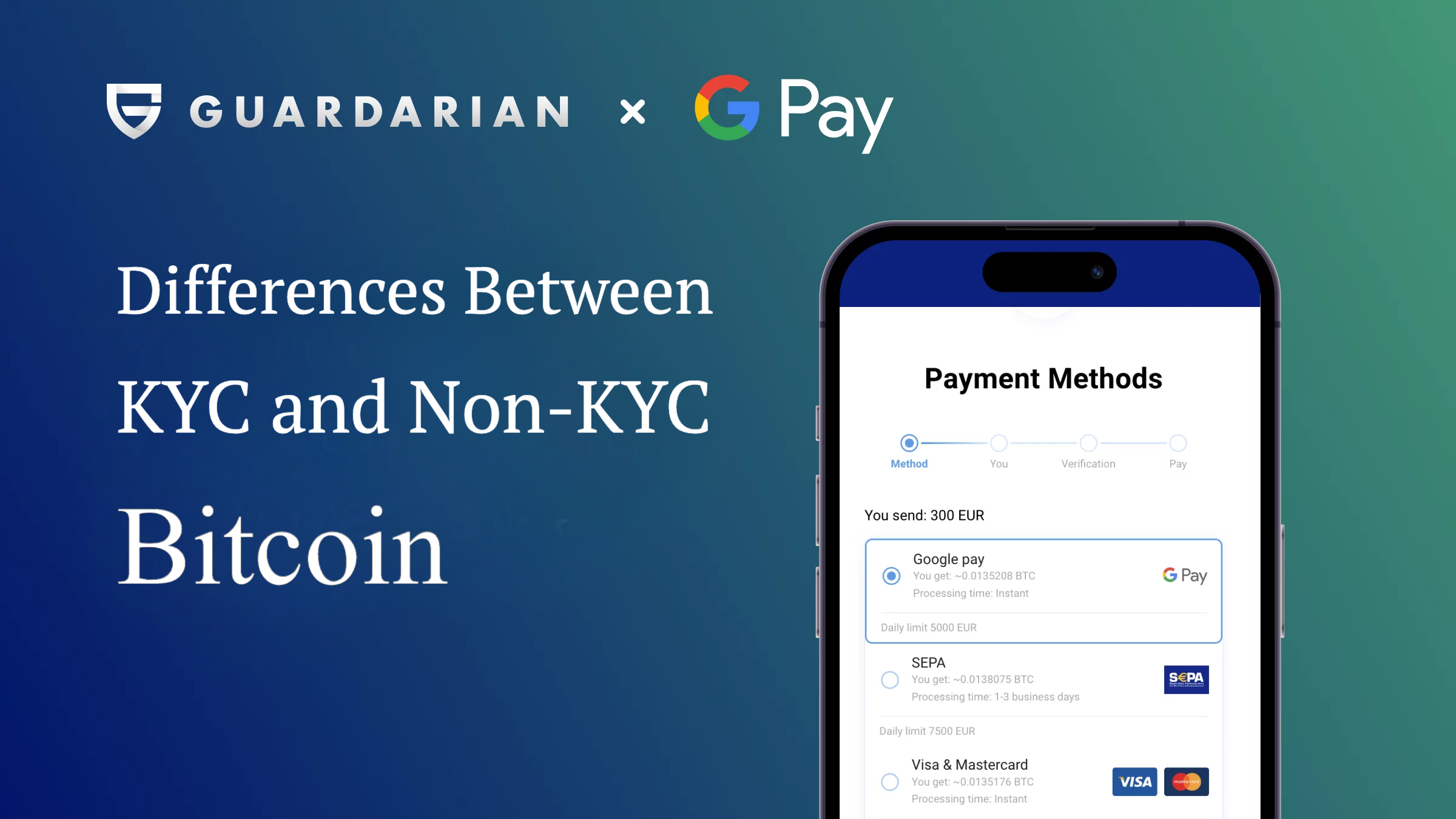The concept of cryptocurrency has changed traditional monetary systems and perceptions on how money must be used. However, the increase in the usage of cryptocurrency also increased financial menaces: money laundering, fraud, and other illegal financial activities. To avoid such risks, the majority of crypto exchanges use KYC. On the other hand, non-KYC exchanges offer a less authoritative way of buying cryptocurrencies. What are non-KYC exchanges? How to buy non-KYC Bitcoin? Follow the article to find the answers.
What Is KYC and Non-KYC in Crypto?
Check out the difference between what is KYC and non-KYC. KYC stands for Know Your Customer, which is a set of financial specific procedures that are designed to help financial institutions identify those customers who may be involved in any form of money laundering. KYC implies the users to have a confirmation with their documents, that they are not involved in any type or form of illegal financial activities.
By this term, the customer should be known, so he provides such personal information, as:
- Full name;
- E-mail address;
- Home address;
- Identification (like passport, or driver’s license);
- Bill or Bank Statement, that proves user’s address;
- Biometric verification as when the customer should take a picture or video of himself.
This data is essential for many exchanges, which need users to prove who they claim to be in order to avoid illegal activities.
What is a non-KYC account, and what are non-KYC exchanges? On the opposite, non-KYC crypto exchanges stand for anonymous crypto usage, and don’t require the mentioned personal information. It is beneficial for users, who prefer to use crypto without disclosing who they are to the third party. However, it’s a double-edged coin, as it contradicts the legal and safe crypto usage, which KYC is for. Still, there are a lot of law-abiding users, who simply prioritize privacy and don’t want to be tracked.
Benefits of Crypto KYC
KYC minimizes the risk of identity theft, fraud, and criminal activities. It safeguards an exchange from legal fines, compliance with AML and CTF regulations regulating exchanges by preventing money laundering and terrorism financing. It enhances trust since users and investors are assured of the credibility of the site through the Certification Trademarks. Also, KYC helps in its negative way to deepen the formation of sustainable markets by running out suspicious activities, thus making the crypto market less volatile. It also reduces risks for users, thus making the ecosystem larger and more populated by participants.
Monitoring Cryptocurrency Transaction
Monitoring of cryptocurrency transactions is the process of due diligence through which transactions on a platform are selected and observed in order to identify those which could be considered as problematic or suspicious. This assists the usage of cryptocurrencies in crypto exchanges and financial institutions, as it obeys the conformity with AML regulations to avoid money laundering instances, identifying the users and their personal information.
Advantages and Disadvantages of KYC in Cryptocurrency
Pros: KYC strengthens security measures, reduces instances of scams, and guarantees adherence to regulatory measures on the exchanges. It fosters confidence amongst customers and shareholders, and promotes order in the markets.
Cons: KYC involves the registration process where users are usually asked to input their details, which will be submitted to third parties. It can also bar hard-core unidentified persons from getting involved in either trading or financial services.
Conclusion
Cryptocurrency disrupted conventional financial structures and approaches to the use of money. There is a notable comparison between the KYC and non-KYC exchanges to decide the suitability of the required changes. Each has both benefits and drawbacks, and those factors may influence the choice of how to participate in the cryptocurrency market. These distinctions remain highly relevant for users and the overall financial environment benefiting crypto in the best way.
If you are interested in how to buy non-KYC Bitcoin or Ethereum, platforms like Guardarian provide the options to buy Bitcoin with non-KYC and buy Ethereum with non-KYC. Some of the non-KYC include peer-to-peer trading platforms, decentralized exchanges and crypto-ATMs given they do not ask for personal details.








